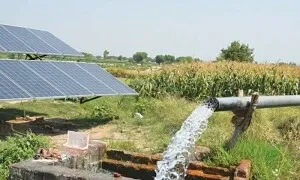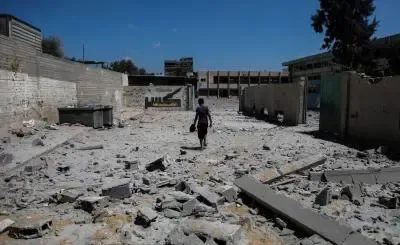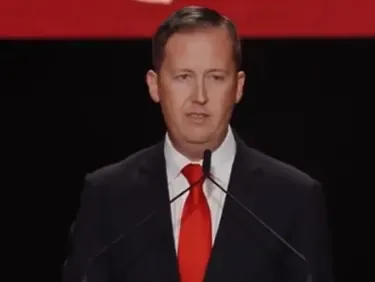Why Are Farmers in Balochistan Criticizing the Government for Solarisation Funds?

Synopsis
Key Takeaways
- Farmers are struggling due to non-released solarisation funds.
- Disruption in electricity supply has severely affected agriculture.
- Government promises remain unfulfilled, leading to financial distress.
- Development initiatives for farmers are desperately needed.
- Solar energy could provide a sustainable solution for irrigation.
Quetta, Aug 17 (NationPress) The Chairman of Kissan Ittehad Pakistan (KIP), Khalid Hussain Bathh, has expressed his frustration towards the Balochistan government for failing to allocate funds to the farmers in the Nasirabad Division—the only agricultural zone in the province—for the transition of agricultural tube wells to solar energy, despite earlier commitments, as reported by local media on Sunday.
During a press conference on Saturday, he remarked that many tube wells have ceased functioning, leading to wilting crops and significant financial distress for farmers due to interrupted electricity supply, as highlighted by Pakistan's prominent daily, Dawn. He mentioned that authorities had assured funding for solarisation, but the sanctioned funds remain unreleased.
Electricity connections were cut off, and the supply was downgraded from three-phase to two-phase prior to any payments being made. He pointed out that tube wells are no longer operational, and water flow in the Rabi Canal has stopped, causing severe hardship for agriculture, livestock, and local communities.
The KIP Chairman indicated that crops have perished due to the lack of irrigation water, alongside a scarcity of drinking water. Following promises from the Balochistan Irrigation Minister, farmers planted crops, but the seeds perished due to insufficient water.
Bathh stated: "No developmental initiatives, including skill development centres, agricultural workshops, or programs for women farmers—who work alongside men—have been introduced to enhance their capabilities."
He urged the government to launch a solar energy program for farmers in the Rabi Canal, Nari, and Bolan regions, who currently rely on diesel generators for irrigation.
In February, the Green Kissan Ittehad (GKI) rejected the 35 percent tax on agricultural production in Balochistan and nationwide, implemented under the directive of the International Monetary Fund (IMF), labeling it a "cruel and anti-farmer measure."
While addressing a press conference, GKI President Agha Lal Jan Ahmadzai demanded compensation for farmers affected by the construction of the Quetta-Karachi Highway in areas such as Khuzdar, Kalat, Mangochar, Mastung, and Surrab, as reported by Dawn.
He noted that 75 percent of the Pakistani population is engaged in agriculture, providing fruits, vegetables, and other products, while contributing millions in taxes. Despite this, the agricultural sector in Balochistan is on the brink of collapse.









